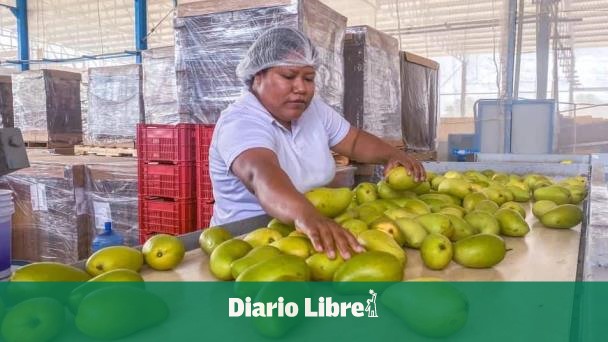Mexico ranked fifth in mango producing countries Worldwide, with a production of more than 2.15 million tons in 2021, an annual growth of 3.4%, the Ministry of Agriculture and Rural Development (Sader) reported on Friday.
According to government data, this tropical fruit It is cultivated in 23 states of the country, on approximately 207,000 hectares, and in 2021 it reached a value of 10,859 million pesos (571.5 million dollars).
The main varieties cultivated in mexican territory They are:
- Caffein (30%)
- Manila (15%)
- Kent (15%)
- Tommy Atkins (14%)
- Haden (9%)
- Criollo (7%), while other varieties represent 11%.
During a meeting called “Our Wealth: Ataúlfo Handle”, organized by Sader, the researcher from the National Institute of Forestry, Agriculture and Livestock Research (Iniap), María Hilda Pérez, highlighted that there are six countries worldwide that lead mango production and “Mexico has consolidated its position in the fifth position”.
Meanwhile, the specialist emphasized that the country has several advantages to export this fruit as a warm weatherproximity to the United States and Canada, as well as the development of technology to grow mangoes with the highest quality standards.
In contrast, Pérez said that there are still pending to strengthen the productive chain such as improving the quality of the fruit, technify orchardsactions against global warming, produce with bioproducts, generate new varieties and increase exports, especially to European markets.
Productive chain
On the other hand, the president of the Mango Product System CommitteeDaniel Radilla, explained that the productive chain is made up of more than 53,873 farmers, of which 13,793 export to the United States.
Radilla expressed that this food industry it has a “growing export potential” with 7,174 orchards registered in the export market.
While the representative of Agriculture In Chiapas, Hector Cano de la Torre, shared that, in the Soconusco region, the peculiarity of flavors, colors and smells of the fruit originates from the amount of cross-pollination that produced unique varieties such as Ataúlfo, the most recognized in Mexico.
In this sense, he explained that this variety is widely accepted in the National market and international, since it has a longer shelf life, in addition to the fact that its flavor and color are highly preferred by Latin and Oriental consumers.
















